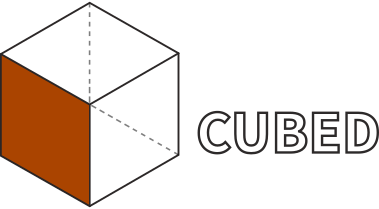Pros and Cons of Choosing NoCode
From: 2022-01-18

No-code platforms have been the rage of late. People are making some very cool projects on top of no-code platforms too, so of course there is going to be wider interest. Let's discuss some of the pro's and con's.
Pro's
Literally, No Code
Well this one is obvious isn't it? You no longer need to make requests of product, wait until they deem your request as valid, and then go through the many months effort to detail, design, build, test, and launch what you asked for.
And, if you needed this for a customer then it's even worse because your customer could have easily moved on by now since they had their problem months ago.
Without code, YOU can jump in and implement what you need, get feedback, and make changes along the way. The feedback loop is shorter and can involved more and faster customer input which will make them happier about what you're building. This is simply a win.
Built in Support
While developers have some support, it's not always right and is usually in the form of forums, teaming up, or community discussion.
No Code platforms have a vested interest in helping you resolve any issue you run into. They want you to use their platform and to be successful with it so that you turn around and tell others about what you built and how you built it. Support is built into the model.
Save Time
Time to market is often crucial to the success of projects. If you need to spend years building a product, there is a good chance that a competitor will pop up and start taking market share. While competition is a good thing, you'd like for all of those customers to be yours rather than someone else's. Also, as living beings on this planet, time is the only thing we cannot get back.
Building with no-code tools reduces the time to product and the time to customers. This means that you can validate an idea super fast compared with all of the development work of traditional code based platforms.
Con's
So Many Tools
There are a lot of tools out there right now. As I noted, no-code has been popular and others are looking to cash in on the opportunity. Some are focused on a very specific niche while others are more broad. The issue is that there are just so many right now. So, it's hard to pick the right tool for the job and there is a lot of mental work that goes into learning each platform to make that decision.
The best option, in my opinion, will depend entirely on how you learn and what you're trying to do. You have choices, so pick something and get started. Don't get stuck trying to figure out every single detail.
So Many Terms
Databases, collections, sources, stores, connections, schemas, oh my.
There isn't any real consistency around what people are calling things in the no-code world. This makes it hard to go from one platform to the other because you've already learned one way. It, again, adds to the cognitive effort required to work with a platform. And, if you're working with someone else on a project, they may use a different set of terms than yourself. This is a pain and causes friction.
The Middle
Yea, this is supposed to be a pro's and con's list. But there are some things that can easily be both. I wanted to cover a couple of them since it's important.
Extensibility
Platforms like Bubble allow you to utilize API connectors to get external data into what you are building. Additionally, they allow you to build out plugins for the platform. This sounds great if you're a developer, like myself.
However, a lot of people aren't so the extensibility means that I need to go out and hire someone to build whatever I need into the platform. Not always a big issue, but it could be easier by being native to the platform.
Scalability
These platforms try to support everyones needs generally. This means that they are going to make decisions that may not be in your best interest.
That said, they benefit most when all of the applications being built are fast and usable by your customers. So, they have incentives to make sure the database and apis work well.
Data Access
If you're not using the built in tools, it can be cumbersome to get your data out. For instance, if you want to create a machine learning model, then getting your data out of the platform can be a challenge. Of course this will depend on the platform you're using, but in traditional code based environments this is usually much simpler.
Conclusion
The no-code world has really exploded and there is so much to be excited about between web, mobile, Slack, and more. It really is going to be huge.
If you're interested in learning about how you can build without code for Slack, then take a look at Cubed or find me on Twitter.

Nick is a founder and developer.
As the creator of Cubed, he is passionate about helping people get the tools they need in their community and business.

